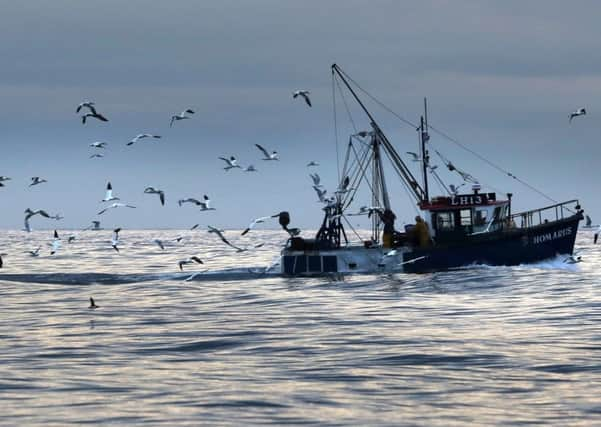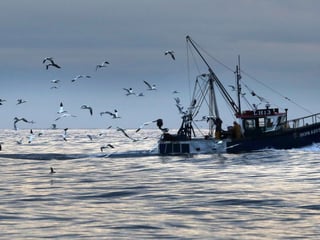Will McCallum: How fishing industry exposes the dark side of Brexit


The EU’s fishing industry is governed by the Common Fisheries Policy (CFP), a regime which has improved in recent years but is still deeply unpopular amongst the largely pro-Leave fishing industry, in part due to the lack of government implementation of the reforms.
Following promises made by many pro-Leave politicians, many in the industry think that the world post-Brexit means escape from restrictions which make their jobs more difficult and, in the run-up to the referendum, fishermen formed a Brexit flotilla and sailed up the Thames in what was perhaps the most visible symbol of the campaign.
Advertisement
Hide AdAdvertisement
Hide AdBut who really controls our fisheries is something which has been assiduously hidden from the public, and from most in the industry. Today an investigation by Unearthed, Greenpeace’s investigative unit, reveals exactly who has that control and who gave it to them.
In 2012, a reform to the CFP handed control of UK fishing quota distribution to the UK Government. The EU takes advice from scientists on what the maximum sustainable catch would be of different fish in different fishing grounds, adds a bit due to political pressure, and then divides that total between the EU’s fishing fleets.
But, since then, each state gets to decide who gets how much of their national quota. In the UK that mostly means Westminster and Holyrood, as it’s a devolved issue and Scotland accounts for two-thirds of the UK’s entire fishing quota.
Fishing boats under ten metres long provide full-time employment to 65 per cent of the UK fishing industry, and yet Holyrood and Westminster have allocated them four per cent of our fishing quota. This is the central scandal of the UK fishing industry, that the sector most likely to fish sustainably and provide significant economic benefits to the UK’s struggling coastal communities is starved of quota, not by the EU, but by Westminster and Holyrood.
So where does the rest of our quota (and it is ours – UK fish are legally a public good owned by all of us) actually go? Over a quarter (29 per cent) of the UK’s fishing quota, and 45 per cent of Scotland’s, is owned or controlled by just five families on the Sunday Times Rich List.
In England, around half (49 per cent) of fishing quota is held by Dutch, Icelandic and Spanish companies, with a further 30 per cent owned by English and Scottish Rich List families. Over half (55 per cent) of Northern Ireland’s quota is hoarded by one single trawler.
Despite the enormous generosity shown to these “Codfathers” by our governments, who are allowed to profit from what is, by law, a public good, over half of the UK’s 25 largest quota-holders are linked to one of the biggest criminal overfishing scams ever to reach the British courts.
Thirteen of these businesses have shareholders, directors, or vessel partners who were convicted following the “Operation Trawler” police investigation into industrial-scale landings of illegally over-quota ‘black fish’ in Scotland. And yet their grip on fishing quota remains unbroken. Despite our courts recognising fish as a public good, this backdoor privatisation shows us it is not being managed in the public interest.
Advertisement
Hide AdAdvertisement
Hide AdPeople who were ordered to pay hundreds of thousands in fines and confiscation orders for their role in the black fish scam are some of the biggest quota-holders in Scotland. And other companies were among those urging Britain to leave the EU to “take back control” of an industry they themselves already controlled to an unhealthy degree.
In many ways, UK fishing quota is a perfect illustration of the darker side of Brexit. Our government colluding with vested interests to give them a bigger slice of the pie, and then telling those with less to blame foreigners.
We hope the light we’ve managed to shed on the quota racket will help Britain’s fleet see who really has control, and aid their fight for a fairer share.
Will McCallum is head of oceans at Greenpeace UK
